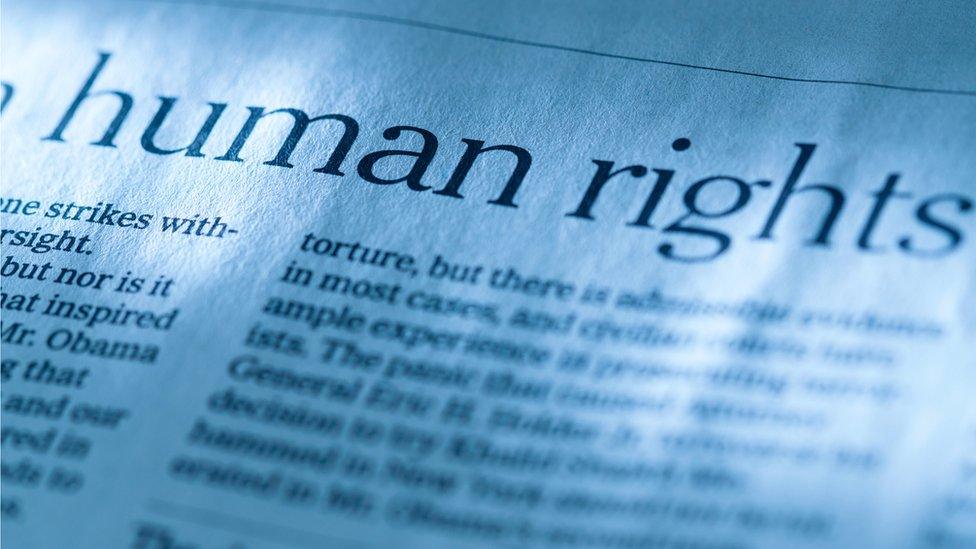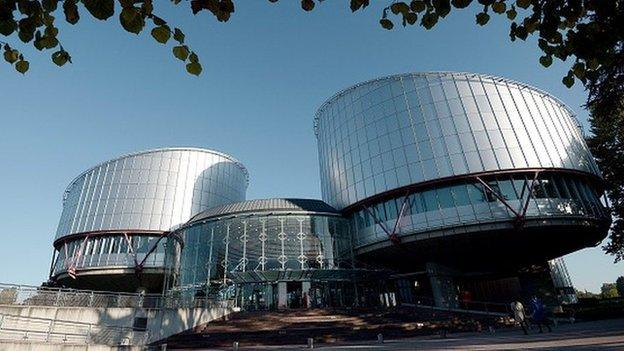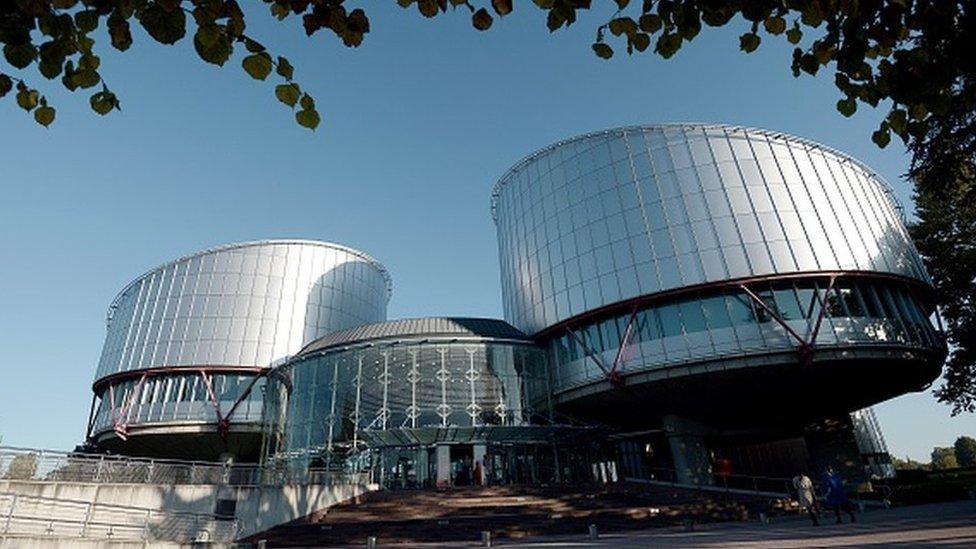Political attitudes leading to 'erosion' of human rights
- Published

Current political attitudes are likely to lead to a "slow erosion" of existing human rights and protections, according to an expert.
Barrister Mona Bayoumi's comments come as a Welsh Assembly committee holds an inquiry into human rights in Wales.
The committee said its inquiry is instrumental in ensuring the assembly is prepared for future changes.
A Ministry of Justice spokesman said the UK government was "committed" to reforming domestic human rights.
Speaking to Sunday Politics Wales, Ms Bayoumi said: "Just to put it in to some context, there was obviously existing UK legislation going back to the 70s that protected, for example, employee rights in respect of discrimination, so it's important to remember that.
"But yes absolutely, I do think that there will be a slow erosion of the existing rights and protections, that really is in line with the debate that we've heard."

The UK government has proposed replacing the Human Rights Act 1998, which could curtail the role of the European Court of Human Rights.
The assembly's Equality Committee is looking at how this could affect Wales.
All Welsh Assembly laws must comply with human rights legislation, and with Theresa May repeatedly saying Britain would be better served by leaving the European Convention on Human Rights, the terms of the legislation could change.
Newport East AM and committee chairman John Griffiths admitted there was "a lot of worry that some of the inclusive practises that we've built in Wales are under threat at the moment".
Wales has to "guard against that", he said.
Mr Griffiths acknowledged there was an issue with how the public view human rights laws, following recent debates about votes for prisoners and human rights regulations blocking criminals from being deported.
"There can be a problem with public perception but it can mainly come, I think, from media sensationalism around fairly atypical cases," he said.
"I think if we look at the general experience and well beyond Wales, their everyday lives are improved, their rights are safeguarded and protected by that human rights approach and the international standards that apply."

Newport East AM John Griffiths and Mabli Jones of Stonewall
Stonewall's Mabli Jones raised concerns that possible changes to legislature could undo the progress of LGBT rights.
"Since the introduction of the Human Rights Act there have been several rulings in UK and EU courts which have advanced legal protections for LGBT people," she said.
"Our concern is that without those protections we could see progress go back decades."
A MoJ spokesman said the UK government would consider the Bill of Rights further "once we know the arrangements for our EU exit" and would "consult fully on our proposals in the full knowledge of the new constitutional landscape that will create".
- Published12 May 2015

- Published12 May 2015

- Published11 May 2015

- Published3 October 2014

- Published30 December 2016

- Published5 February 2015